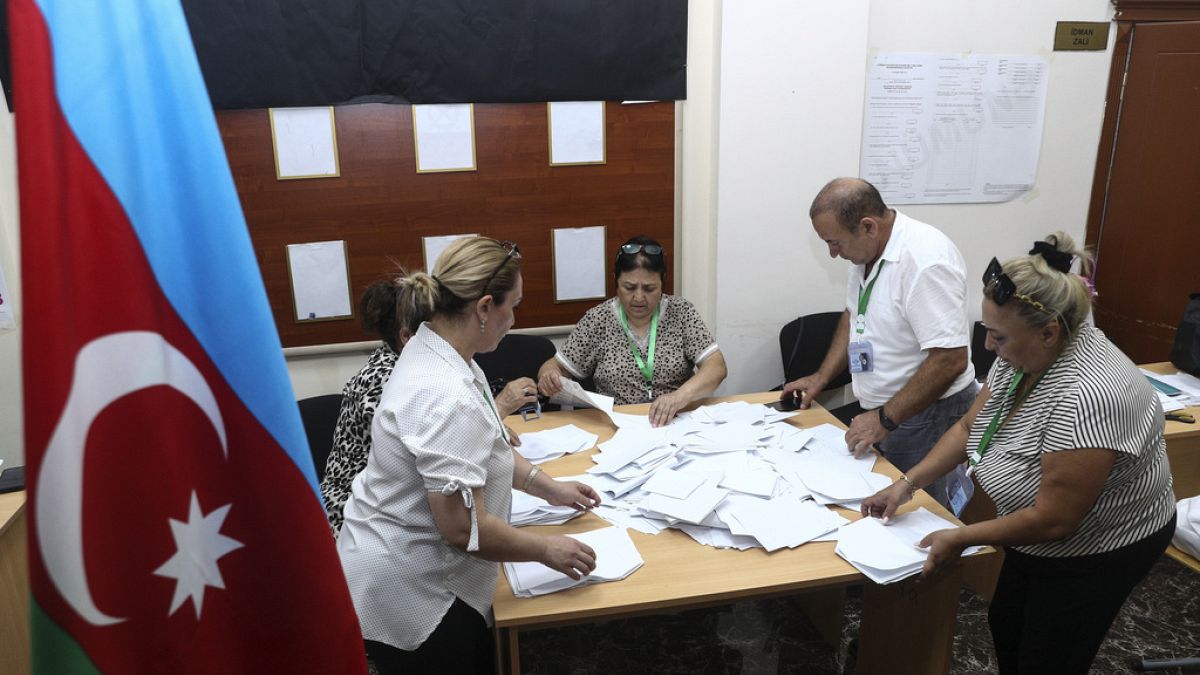The recent snap election in Azerbaijan saw the ruling New Azerbaijan Party, led by President Ilham Aliyev, claim a narrow victory. With 68 out of 125 seats in the Milli Majlis, the country’s parliament, the party maintained its hold on power. The remaining seats were won by small pro-government parties or independents, out of a total of 990 candidates vying for parliamentary seats. This election marks the first since Azerbaijan’s lightning offensive last year to regain control of Nagorno-Karabakh, a former breakaway territory. Despite previous elections being criticized for lack of fairness, significant changes in the parliament are not expected from this election, which underscores the continued dominance of Aliyev’s party.
Azerbaijan has a history of power being concentrated within the ruling family, with both President Ilham Aliyev and his father, Haidar, having ruled the country since gaining independence from the Soviet Union in the 1990s. The Aliyevs have been known for their authoritarian style of governance, suppressing dissent in the country that is rich in oil and natural gas reserves. With the wealth accumulated from these resources, Azerbaijan has seen significant economic development, particularly along the Caspian Sea. The recent election, moved forward by two months to avoid clashing with a major climate conference, follows this trend of continuity in leadership that has characterized Azerbaijani politics for decades.
Despite efforts to present the election as transparent and fair, concerns about the voting process remain. The National Election Commission of Azerbaijan announced that 50 organizations were deployed as independent observers, with the OSCE scheduled to provide its preliminary assessment soon. Independent observers play a crucial role in ensuring that elections are conducted in a free and fair manner. In this case, given the history of electoral irregularities in Azerbaijan, the findings of these observers will be closely scrutinized. Nevertheless, the fact that voting took place in Nagorno-Karabakh for the first time in years serves as a symbolic gesture of Azerbaijan’s renewed control over the region following last year’s conflict.
As Azerbaijan emerges from the shadow of its recent military offensive in Nagorno-Karabakh, the focus now shifts to the future of the country under President Aliyev’s continued leadership. The parliament, dominated by the ruling party, is unlikely to see significant changes following this election. The international community will be closely monitoring the developments in Azerbaijan, especially as the country seeks to position itself as a key player in the geopolitically sensitive South Caucasus region. The outcome of this election will have implications not just for Azerbaijan but also for its relations with neighboring countries and global powers with vested interests in the region.
In conclusion, the snap election in Azerbaijan, while reaffirming the ruling party’s hold on power, also raises questions about the country’s democratic credentials. The legacy of authoritarian rule by the Aliyev family, along with concerns about electoral transparency, continues to cast a shadow over Azerbaijan’s political landscape. As the country navigates its post-conflict recovery and seeks to assert its influence in the region, the conduct of future elections will be closely watched. The role of independent observers and international organizations in monitoring these elections will be pivotal in determining the credibility and legitimacy of Azerbaijan’s political processes. Ultimately, the path forward for Azerbaijan lies in addressing these challenges and fostering genuine democratic reforms that reflect the will of the Azerbaijani people.










